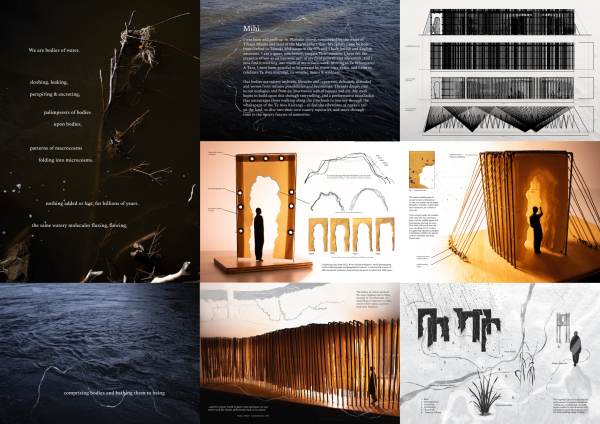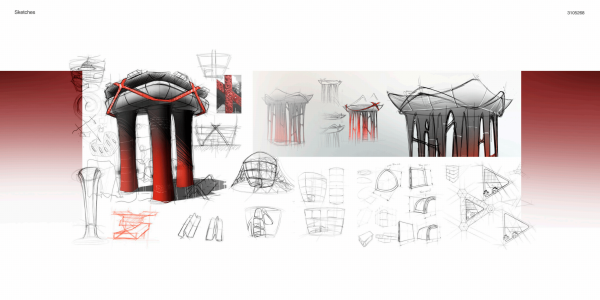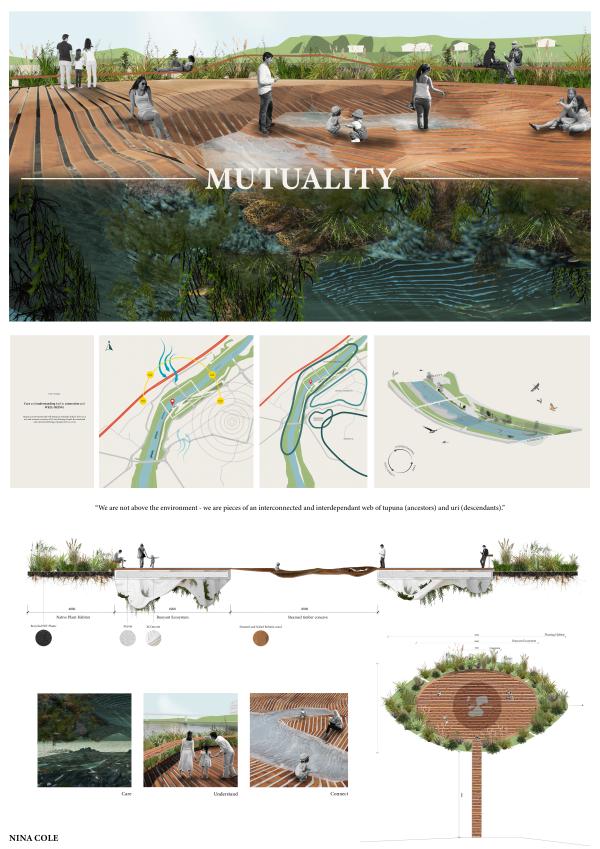NUWAO stands for Nature-based Urban design for Wellbeing and Adaptation in Oceania. We are a group of academic researchers and designers working on this three-year NUWAO project which is funded through the Royal Society of New Zealand Marsden Grant.
Our aim is to develop nature-based urban design solutions, rooted in indigenous knowledge that support climate change adaptation and individual and community wellbeing in different contexts across Aotearoa and Oceania.
As part of this research, we facilitated an International Design Competition and sent a call out to design professionals and practitioners, university students, youth/ rangatahi and the general public to participate in envisioning how to develop innovative nature based urban design solutions rooted in indigenous knowledge. Getting people to imagine a happier and healthier way of living that supported the resilience of community and our ecologies. We invited submissions of urban design, landscape design, architecture, temporary structures, interior architecture, public infrastructure, and buildings. The brief was intentionally broad to allow a range of visionary approaches and design ideas across different scales. The geographic scope for this competition was focused on urban areas of Oceania in particular our case study locations which included Port Vila (Vanuatu), Apia (Samoa), Tarawa (Kiribati), Te Awakairangi (Lower Hutt) and Ōtepoti (Aotearoa New Zealand).
We had approximately 80 entries that were submitted, a big task for our esteemed judges Dr Huhana Smith, Dr Rebecca Kiddle and Lama Tone they managed to select a total of 14 winners 3 from each of our categories as well as awarding 5 Special mentions. So many fantastic ideas came from this International Design Competition that will help to understand the issues that need to be addressed in urban areas of Oceania as well as capturing the collective imagination and innovative and creative solutions regarding how we might adapt to climate change. Which is why we thought it essential to share this through the form of an exhibition at Thistle Hall. We also have an array of portraits with QR codes attached that will direct you to some fantastic kōrero with people that are passionate about this mahi, all sharing their perspectives, and expertise.


